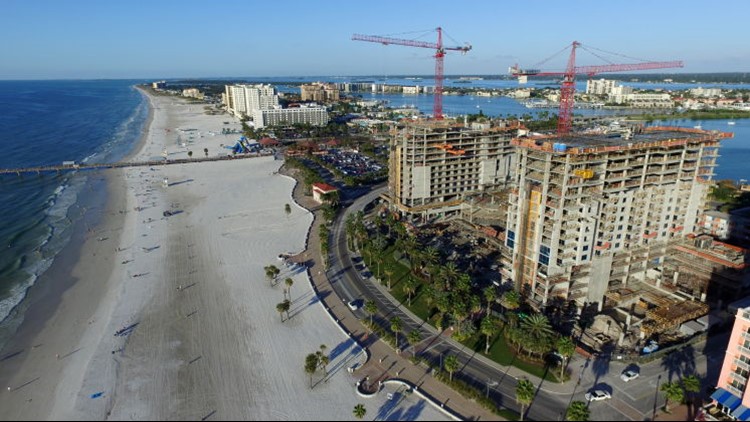SARASOTA, Fla. — With all eyes on the catastrophic building collapse in Surfside, Florida, condo owners, associations, and property management groups are taking another look at the safety of their own buildings.
"Boards are awake. Management companies are awake. Engineers are going to be very busy. Repair contractors are going to be very busy," said Alan Tannenbaum, a Board Certified Construction Lawyer.
Tannenbaum represents condo and homeowner associations across Florida. He and his colleagues had a virtual seminar planned for next week to discuss the lifespan of condominiums. The class is called, "Aging Condo Buildings – Repair or Abandon?" Prior to the collapse in Surfside, 150 property managers and board members had signed up but now there are more than 400 scheduled to attend.
Tannenbaum went over key considerations every condo owner and board owner should understand.
First, let's go over life span. Tannenbaum says a study in the early 1980s indicated that coastal high-rise condos were estimated to last 50 years before needing to be demolished.
Even if your building has been well-operated and well-maintained, there are certain challenges a high-rise, ocean-front condo faces that make termination the best option after so many decades.
"Florida's coastal environment is harsh on reinforced concrete structures. They’re just not going to last forever under the impact of salt, wind-driven rain, heat," explained Tannenbaum.
Condo buyers and owners need to be ready for sticker shock. Repairs and renovations on common structures can cost hundreds of thousands of dollars.
The condo association has a legal duty to ensure buildings are being maintained and structures are safe but the board also has to take into consideration the cost and financial burden for owners.
Time and time again, Tannenbaum sees boards met with resistance from unit owners when it comes to repairs.
"I think people are prone to short-term thinking," he said.
If an owner thinks their board is being negligent and failing to make repairs, an owner can go to court.
"If the board of directors does not administer that activity properly, the owner can go to a circuit judge, seek an injunction to force the board to undertake its maintenance and repair responsibilities," explained Tannenbaum.
If you're considering buying a condo, you probably want to do a lot of research about the history of the board and building. This gets tricky.
A potential buyer does not have the legal right to obtain past minutes from condo association meetings or engineering reports. The buyer can, however, request that information from the seller.
By law, the board only has to provide an estoppel letter to a prospective buyer, which informs new buyers about the financial obligations to the condo association left by the previous owner.
RELATED: Experts find older condos could face scrutiny before sale following Surfside high-rise collapse
You could have to live elsewhere while big repairs are being made on your building. If your condo association determines that a big project is necessary, you might have to temporarily find another place to live.
Tannenbaum said, "That’s part of the risk in condo living. The buildings may have to be repaired at some point and be vacated in order for repairs to be undertaken."
Usually, the owners not only have to pitch in financially for the repairs but it's also on them to find a different living arrangement for the time being.
Finally, there could come a time when the decision is made to terminate the building and sell the property.
That means the board could decide the cost of trying to rehabilitate the building no longer makes sense and they want to sell the property. Usually, owners stand to make a profit.
Reaching a termination decision favors the owners because Tannenbaum explained current Florida law says if just five percent of owners aren't interested in termination, the deal is blocked.
For example, you could have repairs costing each owner $30,000 on a property that would make each owner a $300,000 profit through termination. If just five percent of owners want to stay put, all other owners have to pay up for repairs.
- Tropical Storm Elsa strengthens a little as it races toward the Windward Islands
- Devastated condo community looks to Biden visit for comfort
- Bodies of 2 children found in rubble of Surfside collapse, mayor says; number of deaths climb to 18
- Vasilevskiy, Coleman lead Lightning to 3-1 Stanley Cup Final Game 2 win
- Bill Cosby freed from prison after sexual assault conviction overturned
- A Frank Conversation: New podcast explores race, religion, politics and more
►Breaking news and weather alerts: Get the free 10 Tampa Bay app
►Stay In the Know! Sign up now for the Brightside Blend Newsletter



